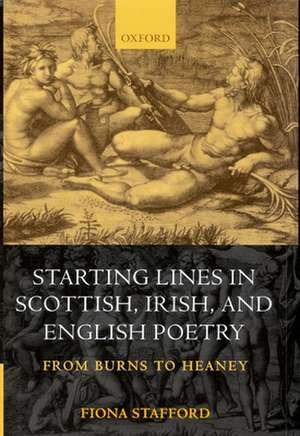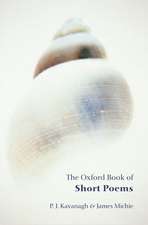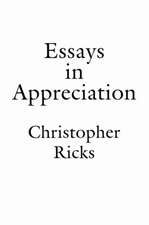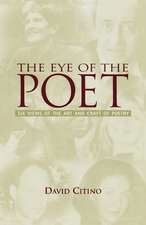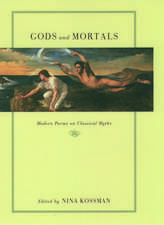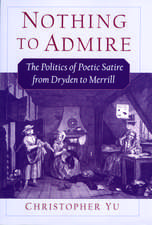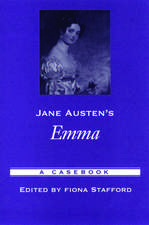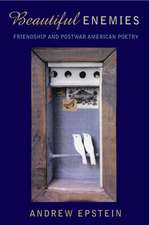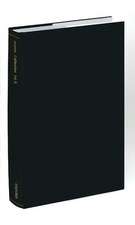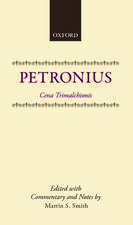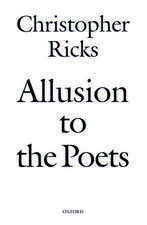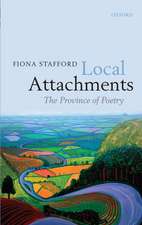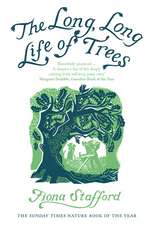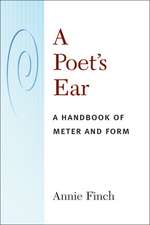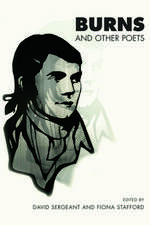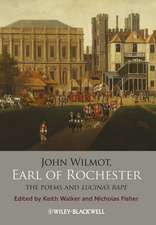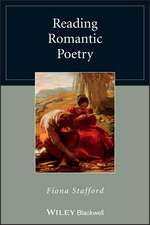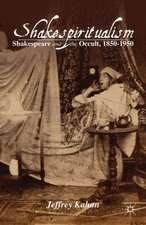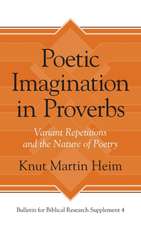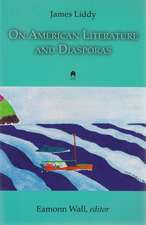Starting Lines in Scottish, Irish, and English Poetry: From Burns to Heaney
Autor Fiona Stafforden Limba Engleză Hardback – 30 noi 2000
Preț: 444.37 lei
Preț vechi: 646.43 lei
-31% Nou
Puncte Express: 667
Preț estimativ în valută:
85.03€ • 89.02$ • 70.36£
85.03€ • 89.02$ • 70.36£
Carte tipărită la comandă
Livrare economică 25-31 martie
Preluare comenzi: 021 569.72.76
Specificații
ISBN-13: 9780198186373
ISBN-10: 0198186371
Pagini: 368
Dimensiuni: 146 x 225 x 23 mm
Greutate: 0.55 kg
Editura: OUP OXFORD
Colecția OUP Oxford
Locul publicării:Oxford, United Kingdom
ISBN-10: 0198186371
Pagini: 368
Dimensiuni: 146 x 225 x 23 mm
Greutate: 0.55 kg
Editura: OUP OXFORD
Colecția OUP Oxford
Locul publicării:Oxford, United Kingdom
Recenzii
This is a work of mature scholarship; its references inform, delight and open new avenues of connectedness at every turn. It is also unpretentiously, generously written: the speaking voice and personal enthusiasms of the best kind of teacher hold interest across an impressively broad span of poetic analysis ... It is as persuasive an advocacy of the pleasure of poetry as I have read in years.
Enjoyable new book ... A ranging and attentive book, engaging in its particulars and suggestive in its implications.
Stafford argues thoroughly and persuasively ... This book provides a fascinating model for readers of any poem that engages another across cultural and chronological boundaries, and for literary criticism as a whole.
Starting Lines is a welcome contribution to a trend in which Scottish and Irish literatures are considered on their own terms ... Stafford offers refreshing close analysis ... The argument is lucidly presented, with careful structuring and logical progression signaled by useful transitions. Helpfully, each chapter opens with the full texts the poems being considered, and in each case the poet's ideas and practices regarding quotation are fully examined.
The introduction lays out a thorough, intelligent discussion of eighteenth-century constructions of originality, its associations with independence, and its role in Romantic aesthetic theory.
For anyone interested in poetic allusion the book is essential reading ... a challenging, acute and sometimes beautifully written account of that texture of historical, cultural, and textual relations that makes literary history.
One can only admire the scholarship and learning on display here ... one's understanding of the book's poems is enormously enhanced.
It is a tribute to the interest of this book that one could wish it considerably longer ... The author evidently set out to initiate avenues of approach to a fruitful territory of understanding between the three nations; and in this she has been triumphantly successful.
The background reading is both wide-ranging and detailed, so that the poems are located on a series of interlocking maps, national and international. Nor does the author hesitate to venture into terra incognita.
Enjoyable new book ... A ranging and attentive book, engaging in its particulars and suggestive in its implications.
Stafford argues thoroughly and persuasively ... This book provides a fascinating model for readers of any poem that engages another across cultural and chronological boundaries, and for literary criticism as a whole.
Starting Lines is a welcome contribution to a trend in which Scottish and Irish literatures are considered on their own terms ... Stafford offers refreshing close analysis ... The argument is lucidly presented, with careful structuring and logical progression signaled by useful transitions. Helpfully, each chapter opens with the full texts the poems being considered, and in each case the poet's ideas and practices regarding quotation are fully examined.
The introduction lays out a thorough, intelligent discussion of eighteenth-century constructions of originality, its associations with independence, and its role in Romantic aesthetic theory.
For anyone interested in poetic allusion the book is essential reading ... a challenging, acute and sometimes beautifully written account of that texture of historical, cultural, and textual relations that makes literary history.
One can only admire the scholarship and learning on display here ... one's understanding of the book's poems is enormously enhanced.
It is a tribute to the interest of this book that one could wish it considerably longer ... The author evidently set out to initiate avenues of approach to a fruitful territory of understanding between the three nations; and in this she has been triumphantly successful.
The background reading is both wide-ranging and detailed, so that the poems are located on a series of interlocking maps, national and international. Nor does the author hesitate to venture into terra incognita.
